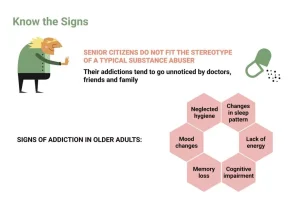
It typically implies following a specific diet or using special products that claim to rid your body of toxins, thereby improving health and promoting weight loss. The term toxin can refer ways to flush alcohol out of your system to pollutants, synthetic chemicals, heavy metals, and processed foods, which can negatively affect health. Learn more about the short- and long-term effects of drinking alcohol.

How to Flush Your Liver With Olive Oil & Lemon Juice
There’s nothing you can do to speed up how quickly alcohol leaves your system. In some cases, drinking a lot of water before a urine test can reduce the reliability of the test. Using mouthwash before a breathalyzer test can also reduce the reliability of that test. And, dying your hair with harsh chemicals can reduce the reliability of a hair test. In addition, if you have to hide alcohol use, it’s a good sign that you need help.
When to see a doctor about floating poops
- And in the realm of number two, noting whether your poop tends to float or sink, and if the answer has changed, is a part of interpreting that message.
- A doctor can evaluate your overall health and alcohol abuse history to help you determine how likely it is that you’ll experience symptoms.
- It’s not just about alleviating the symptoms of a hangover; it’s about aiding our bodies in recovering and detoxifying from the effects of alcohol consumption.
- Counting your breath — either the time of the inhalations and exhalations or each breath cycle — is also a great way to give your mind something to focus that isn’t your woes.
When your body is working to flush alcohol out of your system, certain foods can hinder this process. Being mindful of your diet during detox is as important as knowing what to eat. Once alcohol is in your system, the natural question is how to expedite its removal.
Ready to Get Started on Your Journey to Long-Term Recovery?
Although these numbers are staggering, many individuals struggling with alcohol consumption are seeking treatment. One of the first steps in overcoming an alcohol addiction is the detoxification process. Alcohol slows down the body’s central nervous system, which affects major systems in the body.
However, this rate can vary based on several factors, including age, gender, liver health, and whether other drugs or medications are present. We will delve into the body’s process of metabolizing alcohol, exploring effective strategies to support this natural detoxification. With a focus on practical advice, we aim to equip you with the knowledge to responsibly manage alcohol’s impact on your body. Signs include being unable to control the amount you drink, drinking affecting your personal or professional life, experiencing withdrawal symptoms, or feeling a need to drink to function normally.

Substance Abuse

You should certainly go to the emergency room (ER) anytime you’re having serious withdrawal symptoms like difficulty breathing, rapid heart rate, or seizures. If you simply show up and you’re not having a medical emergency, they might just refer you to a local substance abuse treatment center. Remember that while these foods and drinks can support your recovery, the most effective way to eliminate alcohol from your system is time. Your liver will metabolize alcohol at its own pace, and these choices can complement the natural detoxification process. Incorporating Vitamin B-rich foods into your diet after alcohol consumption can support your body’s detoxification processes and help mitigate the negative effects of alcohol. But, the truth is that the only way to flush alcohol from your body is through time, as your liver metabolizes it.
- The latter is a sign to call your primary care doctor or a gastroenterologist, she says.
- If you’re detoxing from opioids, you might get methadone or buprenorphine.
- It’s important to note that there is no guaranteed way to flush alcohol from your urine completely.
- One minute could be the first step towards a lifelong meditation practice or it could be nothing.

